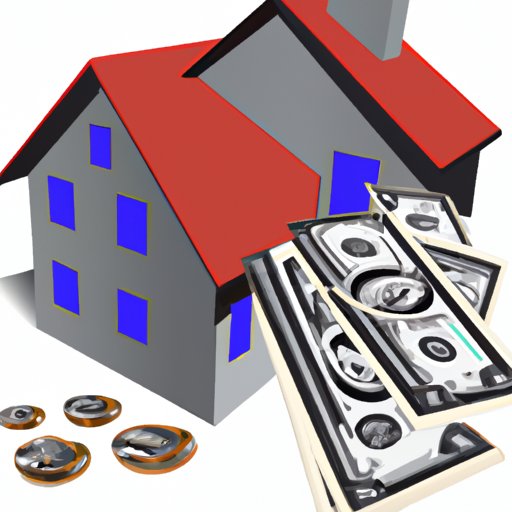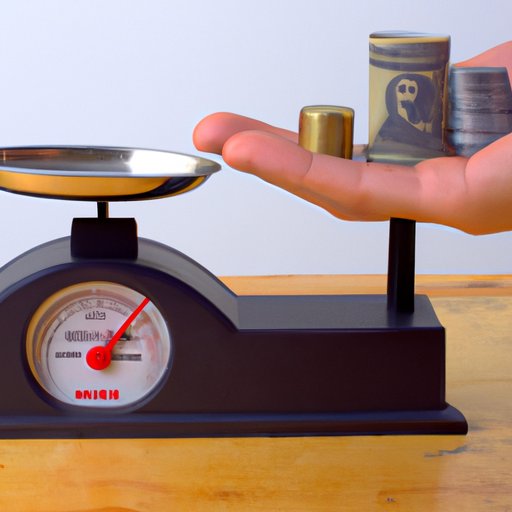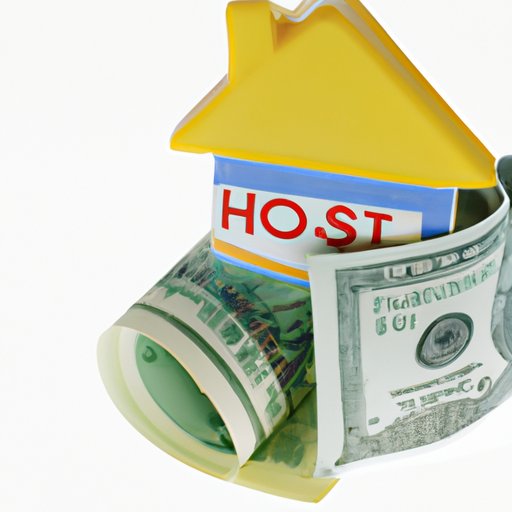Introduction
Buying a home is one of the biggest investments you will ever make. It’s important to understand all aspects of the home buying process to ensure that you are making the best decisions for your future. One of the most important parts of the process is understanding how earnest money works.
Earnest money is a deposit made by a buyer to show their seriousness about buying a property. It is usually held in escrow until closing and then applied towards the purchase price of the home. It is an important part of the home buying process because it demonstrates the buyer’s commitment to the deal and helps protect the seller from potential losses if the buyer fails to close on the home.
Explaining the Basics of Earnest Money and How It Works
So, what is earnest money? In simple terms, it is a deposit made by the buyer to the seller when they enter into a contract to purchase a property. The earnest money is typically held in an escrow account until the closing of the home. At that time, the earnest money is applied to the purchase price of the home.
The terms and conditions of earnest money vary depending on the situation. Generally, the seller will require the buyer to put down a certain percentage or dollar amount of earnest money. This money is typically non-refundable unless certain conditions are not met, such as if the buyer is unable to secure financing or if the seller does not meet the contingencies of the contract.

Benefits of Putting Down Earnest Money When Buying a Home
Putting down earnest money is an important step in the home buying process. It shows the seller that the buyer is serious about purchasing the property and helps to protect them from potential losses if the buyer fails to close on the home. According to Realtor.com, “When buyers put down earnest money, they are showing the seller they are committed to the deal and that they have the financial means to follow through with the purchase.”
It also gives the buyer some negotiating power. According to Investopedia, “By putting up earnest money, buyers may be able to negotiate better terms on the price or other elements of the sale.” This can be beneficial for both parties as it helps ensure that both sides get the best possible deal.

How to Determine an Appropriate Amount for Earnest Money
When deciding on an appropriate amount of earnest money to put down, there are several factors to consider. It is important to remember that the amount of earnest money should be proportional to the purchase price of the home. For example, according to Bankrate, “If you’re buying a $200,000 home, an earnest money deposit of $2,000 would be reasonable.”
It is also important to remember that the earnest money deposit is not the same as the down payment. The earnest money is typically a much smaller amount than the down payment and is used to show the seller that the buyer is serious about purchasing the property. The down payment is paid at closing and goes towards the purchase price of the home.
It is also important to avoid common mistakes when deciding how much earnest money to put down. For example, according to Zillow, “You don’t want to put down too much money as earnest money, as this could leave you short on cash for closing costs.” It is also important to remember that earnest money is typically non-refundable, so you don’t want to put down more than you can afford to lose.
Understanding the Risks Involved in Using Earnest Money
It is important to understand the risks associated with using earnest money when buying a home. If the buyer fails to meet the terms of the contract, they could forfeit their earnest money deposit. This is why it is important to understand the terms and conditions of the contract before agreeing to put down earnest money.
It is also important to understand what happens if the deal falls through. Typically, the seller will keep the earnest money deposit if the buyer backs out of the deal for no valid reason. However, if the seller is the one who backs out, the buyer will typically receive the earnest money deposit back.

The Role of Earnest Money in the Homebuying Process
Earnest money can play an important role in the homebuying process. It can help improve your negotiating power and give you the upper hand in the negotiation process. It can also help you secure better financing terms, such as a lower interest rate or a larger loan amount.
In addition, according to Zillow, “Earnest money deposits can also be used to help reduce the amount of cash needed at closing.” This can be helpful if you are short on cash and need to come up with a larger down payment.
What Happens If You Don’t Put Down Earnest Money?
There are several reasons why you may choose not to put down earnest money when buying a home. For example, you may not have the funds available or you may not feel comfortable taking on the risk of the deposit being non-refundable. However, there are risks associated with not putting down earnest money.
According to Investopedia, “Without earnest money, you may not be taken seriously by the seller and may miss out on the opportunity to purchase the home.” Additionally, not putting down earnest money could limit your negotiating power and make it more difficult to secure better financing terms.
How Does Earnest Money Impact Your Mortgage Financing?
Earnest money can also have an impact on your mortgage financing. For example, according to Bankrate, “Your earnest money deposit can be applied toward the down payment of your loan.” This can help reduce the amount of cash you need to come up with at closing.
In addition, it can also affect your interest rate. According to Investopedia, “If you put down a large earnest money deposit, it can signal to lenders that you are a reliable borrower, which could result in a lower interest rate.”
Conclusion
Earnest money is an important part of the home buying process. It demonstrates the buyer’s commitment to the deal and helps protect the seller from potential losses if the buyer fails to close on the home. It is important to understand how it works and how to determine an appropriate amount. Additionally, it can have an impact on your mortgage financing, so it is important to understand the risks involved. By understanding how earnest money works and how it can benefit you, you can make informed decisions when buying a home.
(Note: Is this article not meeting your expectations? Do you have knowledge or insights to share? Unlock new opportunities and expand your reach by joining our authors team. Click Registration to join us and share your expertise with our readers.)
